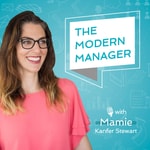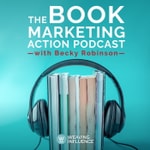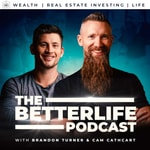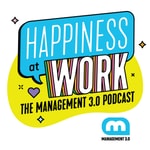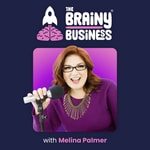Leveraging Thought Leadership – Details, episodes & analysis
Podcast details
Technical and general information from the podcast's RSS feed.
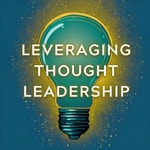
Leveraging Thought Leadership
Peter Winick and Bill Sherman
Frequency: 1 episode/4d. Total Eps: 650

Recent rankings
Latest chart positions across Apple Podcasts and Spotify rankings.
Apple Podcasts
🇨🇦 Canada - marketing
18/06/2025#64🇬🇧 Great Britain - marketing
17/04/2025#76🇨🇦 Canada - marketing
08/04/2025#49🇬🇧 Great Britain - marketing
24/03/2025#58🇬🇧 Great Britain - marketing
23/03/2025#48🇨🇦 Canada - marketing
20/02/2025#73🇨🇦 Canada - marketing
29/01/2025#68🇬🇧 Great Britain - marketing
28/01/2025#95🇨🇦 Canada - marketing
20/01/2025#60🇬🇧 Great Britain - marketing
27/10/2024#85
Spotify
No recent rankings available
Shared links between episodes and podcasts
Links found in episode descriptions and other podcasts that share them.
See all- https://www.partneringleadership.com/
646 shares
- https://mahantavakoli.com/
630 shares
- https://hbr.org/
311 shares
- https://www.linkedin.com/
523 shares
- https://www.linkedin.com/in/mahan/
495 shares
RSS feed quality and score
Technical evaluation of the podcast's RSS feed quality and structure.
See allScore global : 73%
Publication history
Monthly episode publishing history over the past years.
Navigating Virtual Teams and Complexity Theory | Dr. Robert Gordon | 602
Season 1 · Episode 602
dimanche 27 octobre 2024 • Duration 34:57
How do you balance being a practitioner and an academic?
In this episode, Bill Sherman talks with Dr. Robert Gordon, interim department chair for analytics, economics, and finance at American Public University about his unique journey from the world of cruise ships and supply chain to academia, research, and thought leadership. Robert shares his experience moving from practitioner to academic, and now returning to bridge the gap between the two. His expertise in supply chain management, particularly in the maritime and cruise industries, provided the foundation for a shift into research and publishing that impacted both academia and industry.
Robert’s research on virtual teams and complexity theory was initially seen as niche, but when the pandemic hit, his work became highly relevant. The shift to remote work made his insights on virtual teams essential reading. He highlights the importance of staying connected to practitioners through conversations and continuous publishing to keep his research relevant.
Robert’s story is a reminder that thought leadership is not a static process. It’s about continually evolving, reflecting, and bridging the gap between theory and practice.
Three Key Takeaways:
• Bridging the Gap Between Academia and Industry: Robert Gordon emphasizes the importance of staying connected to practitioners while conducting academic research, ensuring his work remains relevant and actionable in real-world settings.
• The Power of Reflection in Thought Leadership: Robert highlights how reflecting on past work is crucial for growth, allowing him to evolve his ideas, improve his writing, and adapt to the changing needs of his audience.
• Virtual Teams and Complexity Theory Gaining Relevance: What was once considered niche research became vital during the pandemic, as organizations around the world shifted to remote work, validating the importance of anticipating future trends in research.
Robert knows the importance of academic research to practitioners. In this video Thought Leadership Leverage CEO Peter Winick explains how you can use academic research to build your thought leadership platform!
Mastering the Pitch: How to Capture Attention and Persuade with Purpose | Joanne Tombrakos | 601
Season 1 · Episode 601
dimanche 20 octobre 2024 • Duration 32:46
What does it take to grab your audience’s attention in the first few seconds?
Bill Sherman explores the art of pitching with Joanne Tombrakos, storyteller, marketing strategist, NYU professor, podcaster and writer. and expert in crafting powerful messages. Joanne breaks down the misconception that pitching is just about selling. Whether you're selling a product or an idea, the goal is the same: persuasion. It’s about getting your audience to stop, listen, and invest time in your idea. Joanne shares the importance of setting the hook early and keeping people engaged by delivering value quickly and clearly.
Joanne emphasizes that pitching is not just for salespeople—it's a skill everyone needs. In business, you're constantly pitching yourself, your ideas, or your projects. She compares pitching to a form of storytelling, where your narrative must not only catch attention but also build trust. Joanne also touches on the fine line between pitching and selling, explaining that while every pitch has an underlying goal of persuading, the real focus is on creating a connection. Through storytelling and strategic messaging, you can build a relationship that makes people want to listen longer.
The conversation also delves into modern challenges, like competing with digital distractions. Joanne stresses that grabbing attention isn’t enough—you need to hold it. Like a Netflix series that hooks viewers in the first few minutes, your pitch needs to pull the audience in right away and deliver substance, not just flash. For leaders, entrepreneurs, and marketers, her advice is clear: simplify your message, make it relatable, and always lead with value.
Three Key Takeaways:
• Pitching is about persuasion, not just selling: Whether you’re pitching a product, idea, or project, the goal is to persuade your audience and capture their attention. It’s not just about making a sale—it’s about getting them to care.
• Hook your audience quickly: Joanne stresses the importance of grabbing attention within the first few seconds. Like a great story, your pitch needs to engage right away, offering value and building trust so your audience wants to stick around.
• Simplicity wins: Don’t overcomplicate your message. The most effective pitches are clear and concise. Distilling your idea into one sentence can help you stay focused and make a more powerful impact.
Joanne helps us understand how the Pitch needs to move beyond persuasion and into a relationship. If you want to understand how those relationships can help ideas reach scale be sure to check out this video by Thought Leadership Leverage COO Bill Sherman.
Unlocking Happiness and High Performance | Jason Silver | 592
Season 1 · Episode 592
jeudi 5 septembre 2024 • Duration 17:36
Today host Peter Winick welcomes Jason Silver, author of the new book "Your Grass is Greener: Use What You Have. Get What You Want. At Work and In Life." Jason, an engineer turned entrepreneur, shares his journey from tech to business and how a personal tragedy led him to reevaluate his approach to work and life. While building a company in the AI space and pushing himself to the limit, a phone call changed everything—his sister was diagnosed with late-stage cancer and passed away nine months later. This profound loss forced Jason to rethink his priorities and laid the foundation for his book.
Jason’s mission with Your Grass is Greener is clear: to help high-achievers realize they don't need to sacrifice joy for success and to empower those stuck in unfulfilling jobs to see they have the
power to change their circumstances without changing careers. He believes that passion and performance can coexist, creating a positive cycle where enjoyment leads to better performance and vice versa.
Although Jason didn’t write the book as a business venture, it
naturally led to opportunities where he now works with executive
teams, leaders, and founders to build high-performing, happy teams. His insights on decision-making—highlighted in two key chapters of his book—have resonated widely, uncovering a common challenge in many organizations: decision paralysis. He’s showing leaders how to make faster, more effective decisions by applying practical science, transforming how businesses operate.
Writing the book taught Jason more than just communication skills; it taught him the art of engaging storytelling. He learned from his editor, who also worked on Atomic Habits, that effective communication isn’t always about brevity but about connecting deeply with your audience. Jason now sees storytelling as a vital tool for leadership and decision-making.
Jason’s vision for the book is ambitious. He sees Your Grass is
Greener as a catalyst for change in the workplace. He believes many are approaching work with a broken mindset, and the solutions we’re currently trying aren’t solving the deeper issues. Instead of job-hopping or pulling back at work, Jason advocates for a different approach: rethinking how we work to unlock massive improvements in both satisfaction and performance.
Three Key Takeaways:
• Balance Ambition with Well-being: Jason Silver’s book, Your Grass is Greener, highlights the importance of finding a balance between achieving professional success and maintaining personal joy. High-achievers don’t need to sacrifice happiness for their goals; it’s possible to enjoy the journey and achieve success simultaneously.
• Empowerment and Agency in Your Career: Many people feel stuck in unfulfilling jobs, but Jason argues that you have more control than you think. By leveraging your existing skills and shifting your mindset, you can transform your current job experience without changing careers. This approach can lead to greater job satisfaction and improved performance.
• Effective Decision-Making through Storytelling: Writing the book taught Jason the power of storytelling in leadership and
decision-making. Clear and engaging communication, rather than mere brevity, can drive deeper understanding and better decisions within organizations. This insight has proven essential in helping businesses overcome decision paralysis and improve overall effectiveness.
Jason shared the very personal origin story of how his book was born. Are you sharing your thought leadership origin story? Check out this short video by Peter Winick on the power of having an origin story.
Growing a Leadership Development Firm | Vaughn Sigmon | 502
Season 1 · Episode 502
jeudi 13 juillet 2023 • Duration 22:29
Today, we're talking with Vaughn Sigmon, the co-founder of Results Driven Leadership which specializes in helping businesses unlock their full potential through transformative leadership practices. Vaughn is also the host of The Business Mechanic – where he shares his expertise to improve the impact of executives and managers by enhancing their knowledge, skills, and abilities.
Leaving a stable executive position to start his own leadership development business was a huge risk. We talk with Vaughn about the driving force behind his shift in career and why he chose the area he did.
Leadership development is a crowded space to enter. Vaughn shares what he did to stand out and win clients. Acquiring clients is the hardest part that few want to talk about. We learn how it requires a multi-step marketing process that creates multiple touch points, allowing potential clients to get to know you, what you stand for, and the problems you are able to solve.
Vaughn explains how the two main marketing platforms he has been using are LinkedIn and podcasting. We learn how Vaughn became smart and focused on who his audience would be and how to create awareness, interest, and a relationship with your audience on the platform.
Finally, we learn about the advantages of starting a podcast or doing the circuit as a guest. Plus, he shares tips for getting your audience to engage and move further down the sales funnel.
Three Key Takeaways:
· You need to get in front of the right people so they get to know you. If they don't buy who you are they're not going to buy your concepts.
· If you are smart and focused, your message is on point, LinkedIn can be a gold mine.
· The title of a podcast or blog entry is of utmost importance. Having great content won’t matter if no one reads it because the title does not entice them.
How to Effectively Publish and Monetize Your Book | Michelle Gladieux | 501
Season 1 · Episode 501
jeudi 6 juillet 2023 • Duration 19:52
Authors tend to be very proud of their books and believe what they've written can help anyone, anywhere! Although that might be correct, the hard truth is you are going to have to focus on the .001% of the population that is going to get the most out of your book and that will in turn get the most out of your content.
To discuss the ins and outs of marketing to your target audience we’ve invited first time author Michelle Gladieux to join us. Michelle is the president of Gladieux Consulting, which offers one-on-one executive and employee coaching and strategic plan facilitation. Michelle’s first book is Communicate with Courage: Taking Risks to Overcome the Four Hidden Challenges.
Michelle shares how she spent four years writing her book to ensure it was ready for publication. Then, her editor suggested that she rewrite the book and focus on an overarching message that would better resonate and pull the reader in. That message would become the four hidden challenges that prevent people from becoming fearless and peerless communicators
Peter and Michelle discuss the hard task of marketing a book, and why you need to start marketing before you're published. We learn what personal touches Michelle used to give the book legs and what experiments she has tried and is continuing to do that have a low cost but potentially high impact!
Three Key Takeaways:
· For most people making money cannot be the main driver for writing a book.
· Don’t be afraid of failure when experimenting with marketing. Some ideas might not fly, but others could go further than you might imagine.
· It is easy to fall into the trap of feeling like everyone can use your book. In order to get the best return on your investment you have to drill down deep into who your target avatar really is.
Leveraging Your Organization’s Thought Leadership | Peter Winick and Bill Sherman | 500
Season 1 · Episode 500
jeudi 29 juin 2023 • Duration 34:34
In today’s conversation, Bill and Peter share how organizations are changing the way they interact with consumers (and potential clients), and how thought leadership can bridge the gap that leads to "next steps" for their audience. They discuss thought leadership strategy (and how to create one), as well as the baseline criteria and metrics you should use, the warning signals that your strategy isn't working, and the importance of alignment across the organization.
The OrgTL Canvas is a framework that can help your ideas spread beyond the walls of your organization, and create real impact. We're pleased to share it, and to join with our listeners in celebrating an amazing 500 episodes of Leveraging Thought Leadership. Thank you for listening to our podcast, and here’s to 500 more!
Three Key Takeaways:
* Strategy does not happen by accident. It has to be purposeful.
* You only need 3 - 5 core provocative ideas to bang the drum on. More isn't always better.
* Thought leadership works to facilitate awareness, provoke curiosity, and serve as a call to education.
Formalizing Thought Leadership within an Organization | Stacey Flax and Carlos Williams | 499
Season 1 · Episode 499
dimanche 25 juin 2023 • Duration 41:18
Our guests are Stacey Flax, Thought Leadership Communication Manager and Carlos Williams, Applications Development Manager from Hach, an organization that focuses on water analysis.
Stacey and Carlos share how people at Hach had been doing thought leadership on their own, before Hach chose to formalize it and amplify the expertise the organization had to offer. Carlos explains how part of the job of a thought leader is to convey your message in relatable terms but also somehow make it fun, through story or anecdotes.
Stacey further explains the need to take a step back and think about your message. Who are you trying to reach? What's the core essence of your insights? They discuss how to convey your thought leadership message in different ways, using different media forms and different techniques.
We also learn how Stacey aided in putting the formal structure in place, getting a baseline of subject matter experts, cataloging all of the previously produced content, and gaining further support from the leadership by being able to show the impact thought leadership was having.
As a bonus, we take a look back at John Snow’s discovery of cholera in the water in the 1920s - perhaps some of the first thought leadership on the topic of water analysis - and how those insights still affect us today.
Three Key Takeaways:
* When formalizing thought leadership within an organization, start by discovering the experts in your organization, and curate the material they have already produced into a usable catalog.
* When creating thought leadership for technical or niche topics, it is important to use storytelling to spice up the content and make it somehow relatable.
* Ensure any information you distribute in your thought leadership aligns with the organization's strategy.
Creating a Thought Leadership Engine | Will Milano | 498
Season 1 · Episode 498
dimanche 18 juin 2023 • Duration 36:29
Early in Will’s career, he found that content and insights could drive conversations, increase credibility, and create strong brand affinity. Since then, he has been encouraging organizations to move their thought leadership beyond the C-Suite, bringing senior consultants into the game and allowing clients to see the full extent of what your organization has to offer. While many fear saying too much or “giving away the magic,” it actually works as a sneak peek that shows clients why they need your services.
One of the hardest parts of creating a thought leadership engine is keeping it going. Will shares how having a knowledgeable team can make it easier to keep that engine going and take your ideas to scale. In addition we learn the importance of by-lines, which give potential clients a name they can seek further content from and grow to trust, and why you’ll want to not only meet your audience where they are, but also meet your content creators where they are most comfortable.
Three Key Takeaways:
· Thought leadership is about relationship building. Building trust and credibility and authenticity as a brand (and individuals in a brand) above anything else.
· Early in the sales cycle customers care far more about what you have to say than what you have to sell.
· More and more people are seeking to know exactly where their information is coming from. By-lines on articles allow the audience to build trust and know it isn’t simply AI-generated content.
Marketing and Product Roadmaps for Entrepreneurs | Stephanie Chandler | 497
Season 1 · Episode 497
jeudi 15 juin 2023 • Duration 17:10
Today, we’ve invited Stephanie Chandler to be our guest. Stephanie is an experienced consultant, specializing in content marketing, internet marketing, social media, search engine optimization, and publishing. She is also the founder and CEO of Stephanie Chandler Enterprises, and the author of The Nonfiction Book Publishing Plan and The Nonfiction Book Marketing Plan.
We start our conversation by discussing the huge changes in the publishing industry during the last few years. Stephanie shares that physical books are still being read (as well as a surge in e-books), but sales of audiobooks are rising, and expected to grow exponentially through 2030. In addition to audio, self-publishing has exploded - bringing more than 1 million titles to the market each year!
With so many books being published, having a strong promotion strategy has never been more important. But what does that look like? Stephanie walks us through the best methods to include in your marketing plan, from podcasts and Amazon promotions to book tours and speaking gigs, as well as giving us surprising insight into one method that might not work as well as you think!
In addition to promoting the book, entrepreneurs will want to create additional products to support that book, and give customers something to put into practice right away. Stephanie shares insights around workshops and webinars, and explains an underutilized method that can actually make more money than your book - with less effort! Be sure to listen in!
Three Key Takeaways: * Well-written, well-produced, and well-promoted books will always rise to the top.
* Social media isn't a great way to sell books. It's great to build a platform and your e-mail list.
* To give your book the best chance of success, spend as much time on preparing the promotion strategy and supporting materials as you do in writing the manuscript.
Finding the Truth in the Topic | Mark Miller | 496
Season 1 · Episode 496
jeudi 8 juin 2023 • Duration 20:38
Our guest today is Mark Miller, Vice President of High Performance Leadership, Chick-fil-A Inc. and Wall Street Journal Bestselling Author of The Secret: What Great Leaders Know and Do and his newest book Culture Rules: The Leader's Guide to Creating the Ultimate Competitive Advantage.
Mark takes us back to his first book and how it was born out of necessity: Chick-fil-A wanted stronger leadership, and took it upon themselves to do the research to find out what that takes. During the process, Ken Blanchard realized the work being done not only articulated what great leaders do at Chick-fil-A, but more, it touched on the things that distinguished great leaders throughout history. And thus, Mark created The Secret: What Great Leaders Know and Do.
With every project, Mark starts with the seemingly simple question, “What is universally true about this topic?” The question acts as a guideline to create a point of view on emerging business issues, and builds a foundation that can serve their organization and the world at large because the viewpoint created reaches beyond any one industry and to the heart of topics like leadership and culture.
Having authored and published books for twenty years, Mark has seen a lot of change. We discuss the strategies Mark is employing as an author, to keep landing on the Wall Street Journal Best Sellers list. We explore prelaunch campaigns, creating a personal army of enthusiastic ambassadors to share the news about your book, and more. Mark gives us the inside track of how he used incentives, gamification, and helping non-profits, to promote the book and find his audience.
Three Key Takeaways:
· With most projects, try to start with "What is universally true about the topic?"
· Everything rises and falls with leaders. If you can help them grow their capacity, impact, and influence, then everyone wins.
· Multi-faceted book launch campaigns that recruit champions, incentivize their participation, and generate Amazon reviews are just a few ways to have a successful book.

